21 Tips and Tricks to Master the Art of Googling as a Developer
"Great developers are great at googling". If you've heard it, you've heard right. Googling is a must-know skill for developers. It can help you effectively search for a solution to a problem or an error. If you want to find the right answer to a problem, you need to know how to ask the right question. This lifelong key skill can save a lot of your time and effort.
Here are 21 tips and tricks to help you master the art of googling as a developer.
1. Use - Operator to Exclude a Term From the Search Results
If you want to exclude a term from the search results, use the - operator.
For example:
If you want to search about the best backend development courses, but you also want to exclude Django from the search results, use the following format:
Best backend development courses -Django
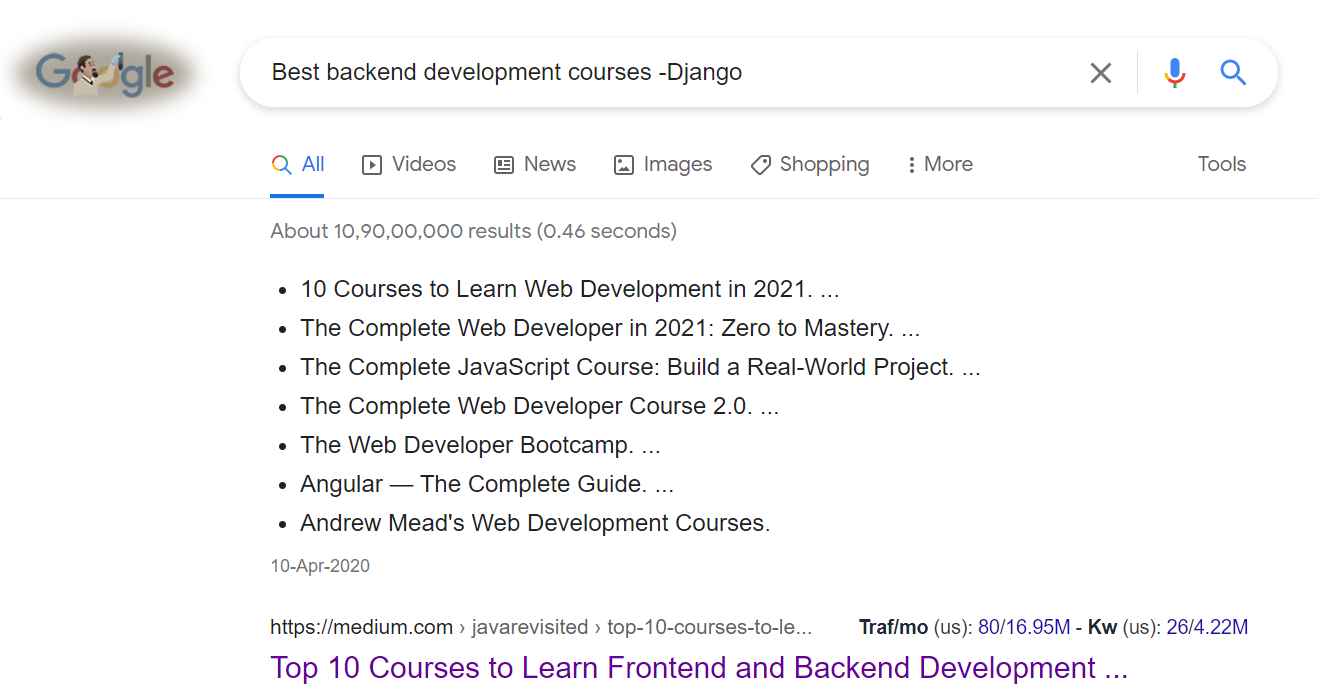
2. Use site: Keyword to Search Within a Website
If you want to search for something within a website, you can use the site: keyword while googling.
For example:
site:makeuseof.com Python
This search query will show all the results related to Python from makeuseof.com.
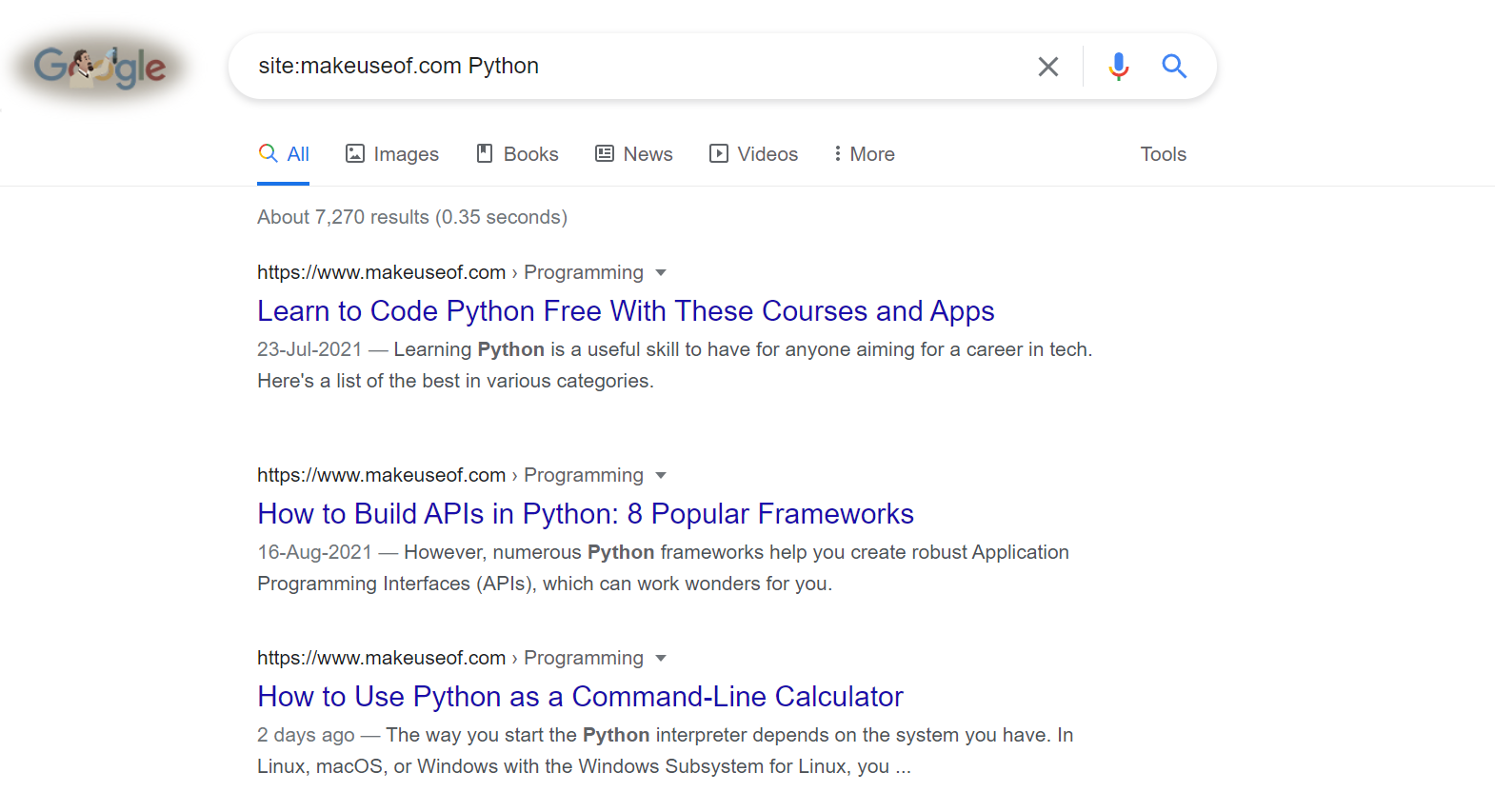
3. Use define: Keyword to Search for Definitions of a Term
If you want to find definitions of a term, use the define: keyword.
For example:
define:inheritance in oops
This search query will show the definitions of "inheritance in oops".
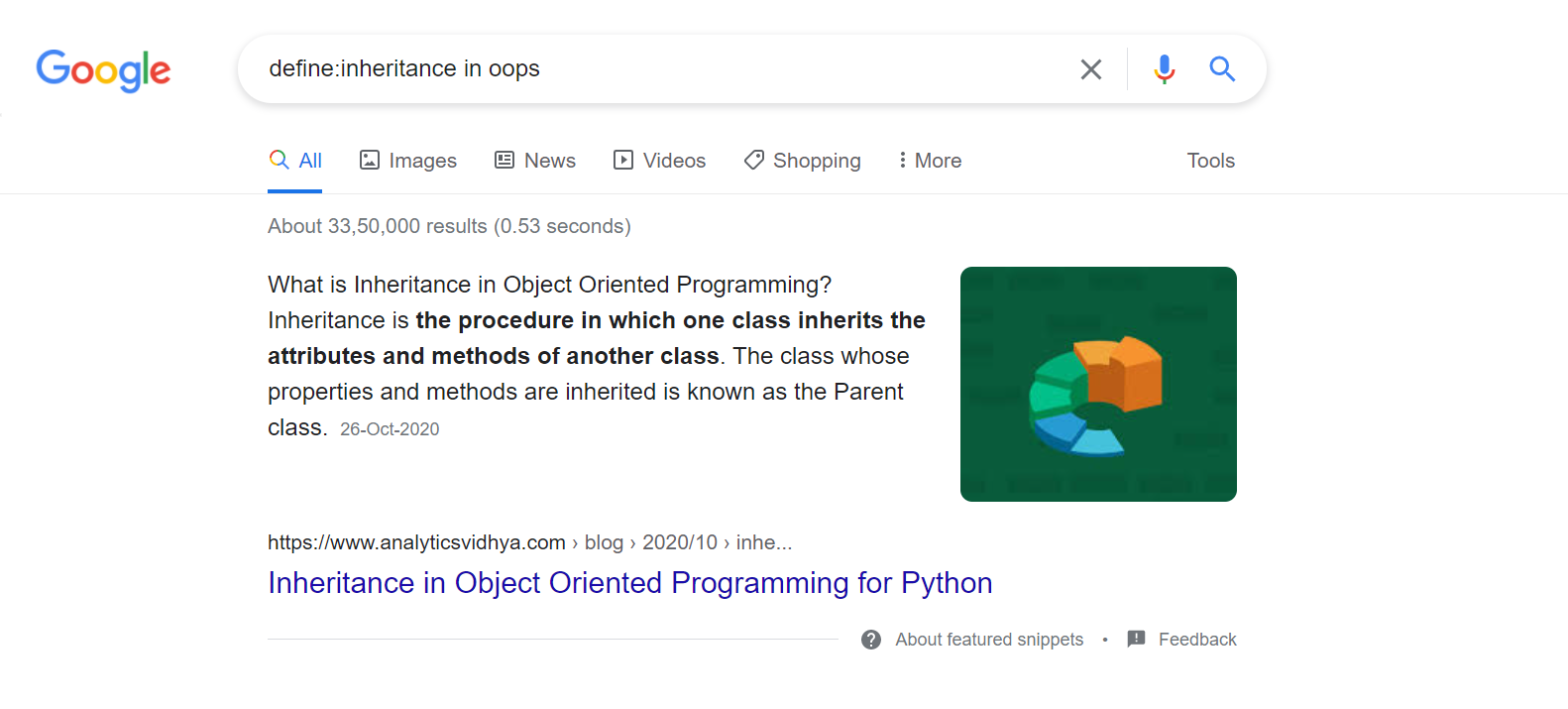
4. Use Double Quotation Marks (" ") to Search for an Exact Phrase
If you want some exact search results, enclose your query in double quotation marks ("").
For example:
"CSS center a div"
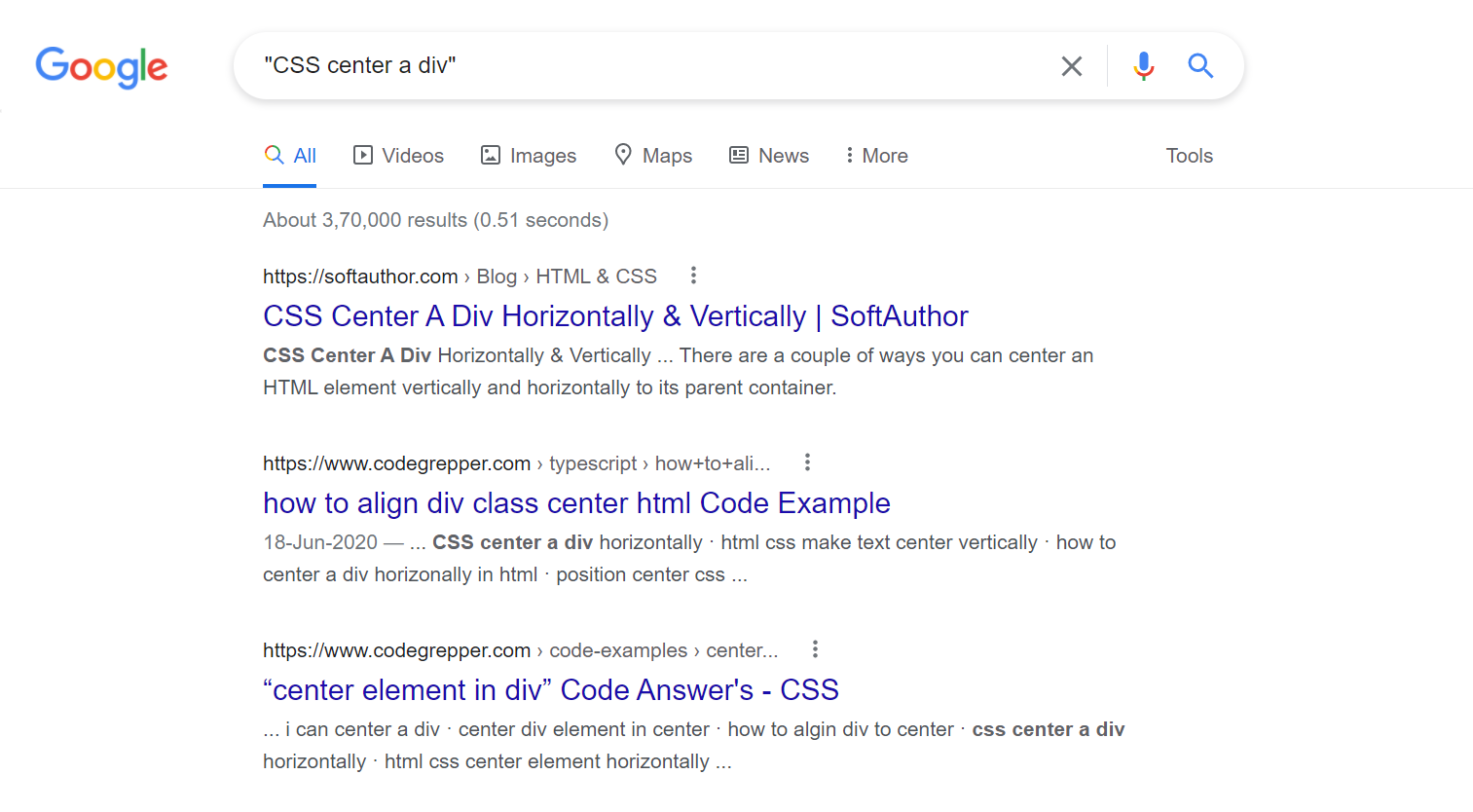
5. Remove Unnecessary Information From the Search Query
It might sound obvious that removing unnecessary information from the search query can make your search results more accurate and relevant. But many people copy-paste irrelevant information such as file paths when they're trying to debug error messages, which sometimes makes the search results inaccurate. Make sure to remove unnecessary information from the search query.
6. Use filetype: Keyword to Search for Results in Particular File Type
If you want your search results in any particular file format, use the filetype: keyword with your search query.
For example:
Hello World Program filetype:py
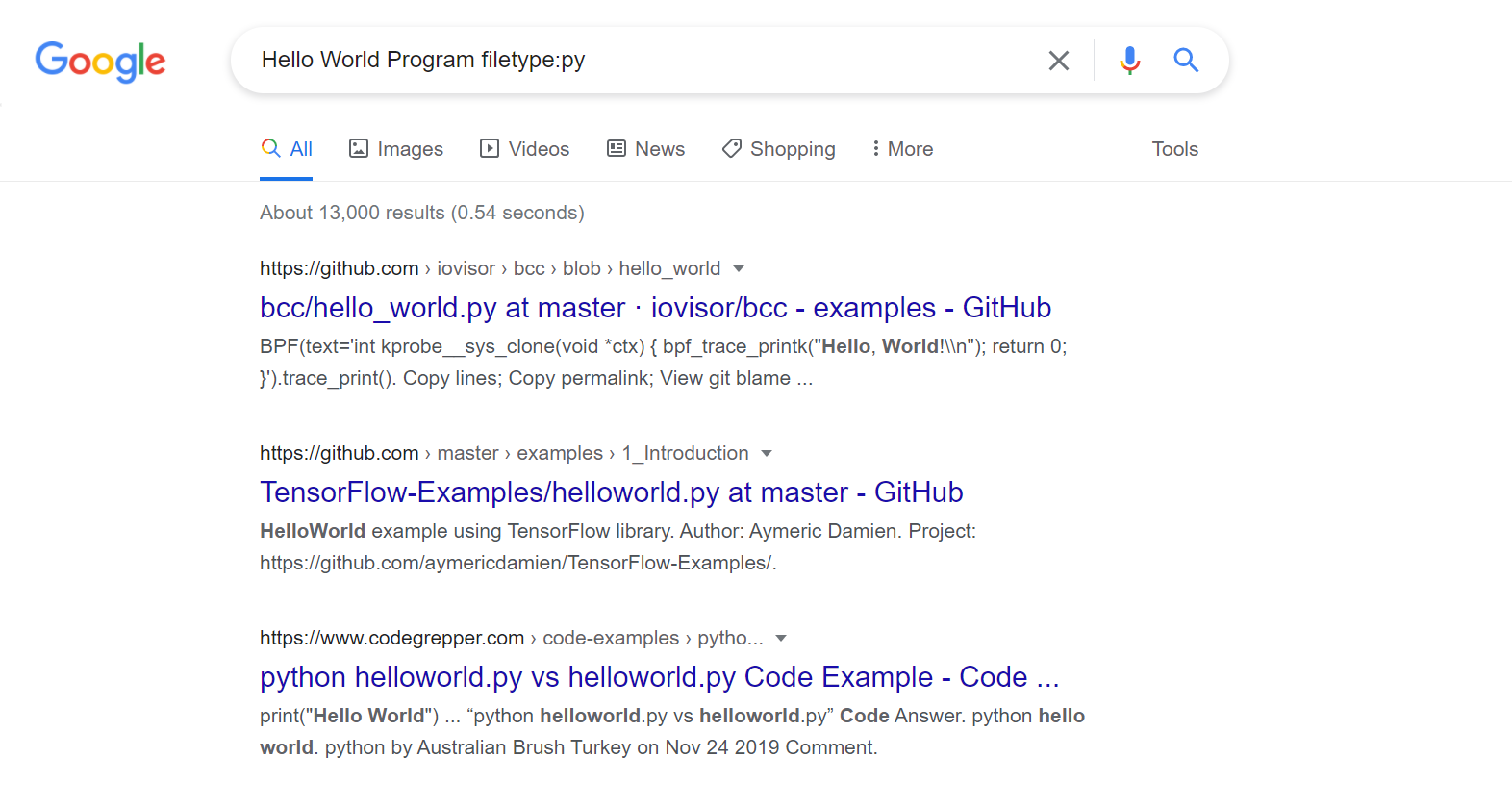
Related: How to Print "Hello, World!" in the Most Popular Programming Languages
7. Use OR Operator to Combine Search Queries
If you want to search for multiple queries at once, you can use the OR operator between each search query.
For example:
Python OR JavaScript tutorial
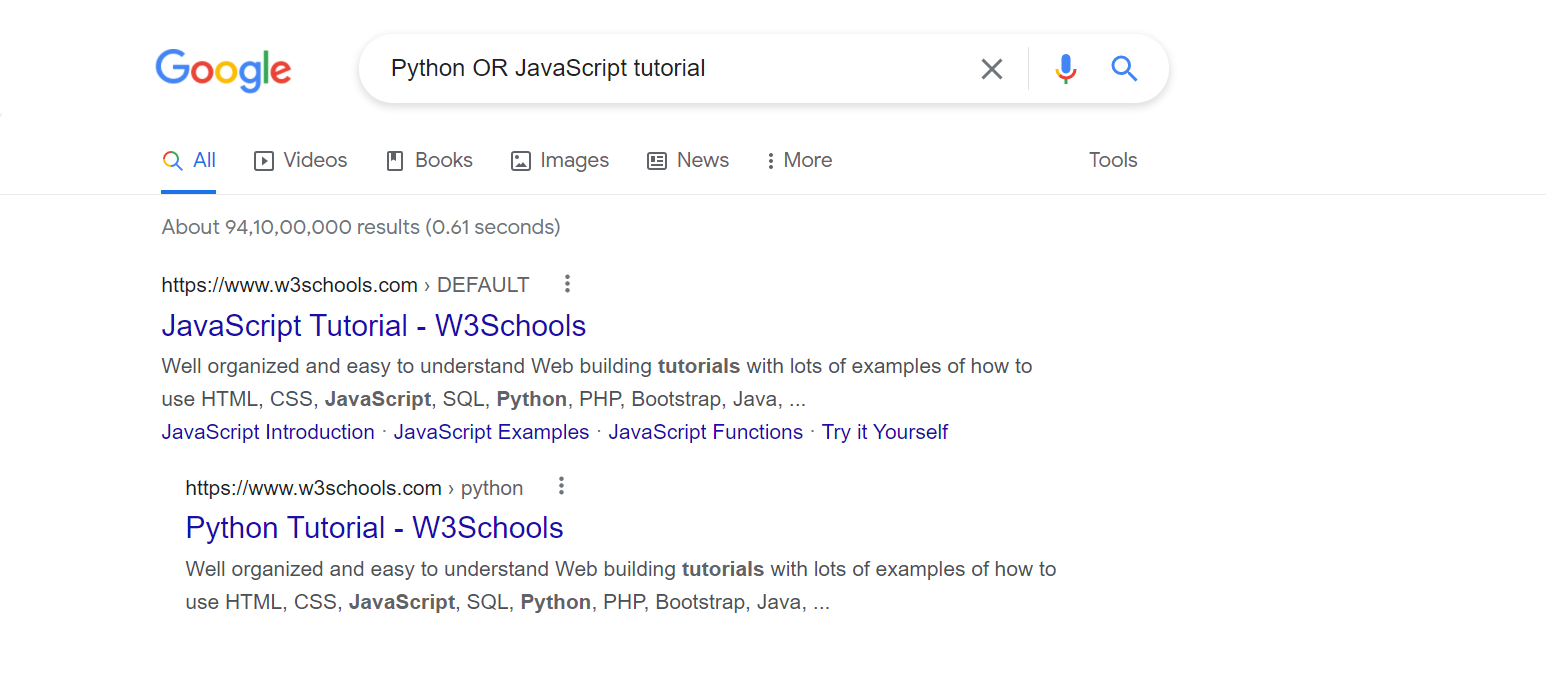
Related: The Best Websites to Learn Python Programming
8. Use related: Keyword to Find Similar Websites
If you need to find some websites similar to the one you know, you can use the related: keyword while googling.
For example:
related:leetcode.com
This search query will show all the similar websites related to leetcode.com.

9. Use * Operator to Replace Missing Words
If you, like me, often forget certain words while searching for something, worry no more. Use the * operator to replace the missing word that you've forgotten.
For example:
* Object Model in JavaScript
This search query will show the results by replacing the * with the most relevant words. In this case, * is replaced by Document as Document Object Model (DOM) is one of the well-known concepts of JavaScript.
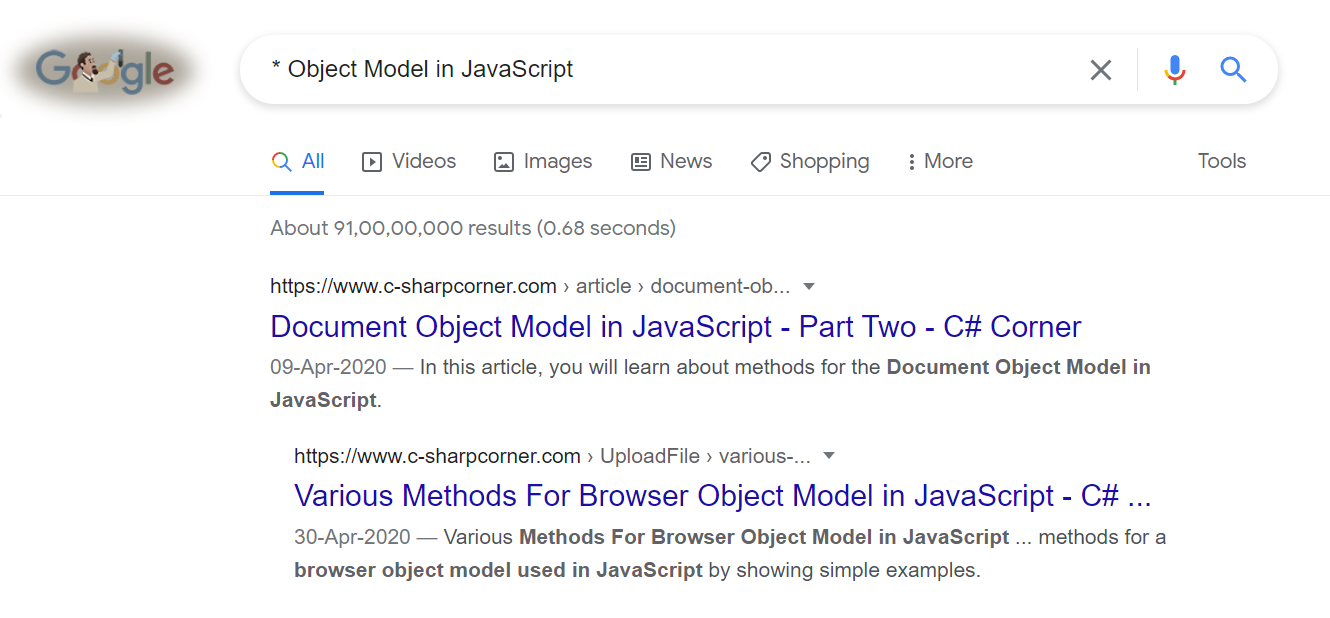
Related: The Hidden Hero of Websites: Understanding the DOM
10. Use location: Keyword to Filter Search Results According to Location
If you want your search results to be filtered out according to location, use the location: keyword with your search query.
For example:
Python Developer Meetup location:New Delhi
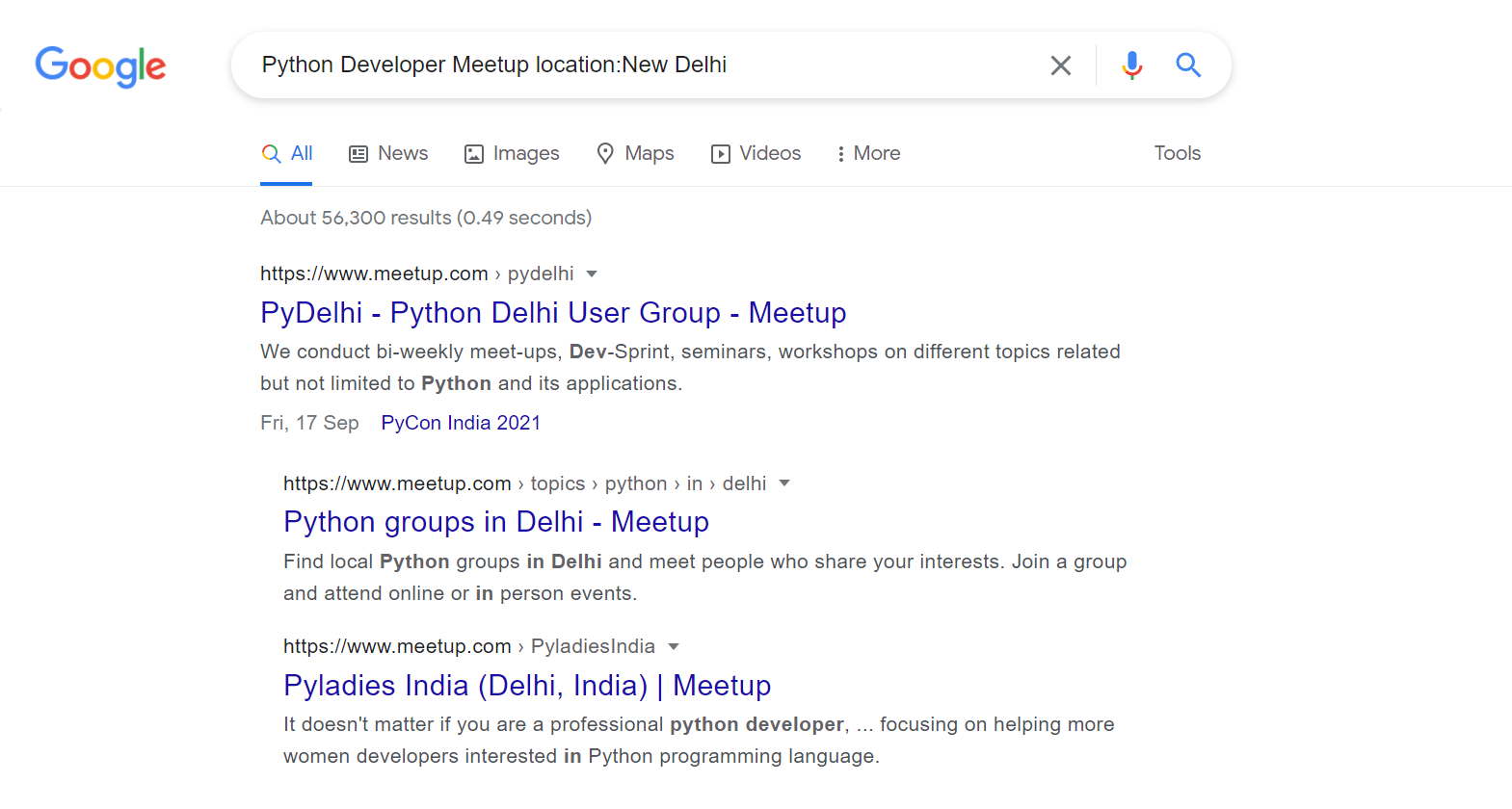
11. Search Using Exact Keywords
Try to search using the exact relevant keywords instead of writing unnecessarily long statements while googling. It'll save you time and produce better results.
For example:
Instead of searching "How can I change the background color of an element using CSS?", search "CSS background color". If the search results aren't what you were looking for using those keywords, make your query a little more descriptive and to the point.
12. Use before: And after: Keywords to Search Within a Date Range
If you want to search for something within a given date range, you can use the before: and after: keywords while searching your query.
The format for before: and after: search commands are:
before:YYYY-MM-DD
after:YYYY-MM-DD
For example:
Advantages of PHP after:2020-01-01
This search query will show all the results related to the Advantages of PHP after 2020-01-01.
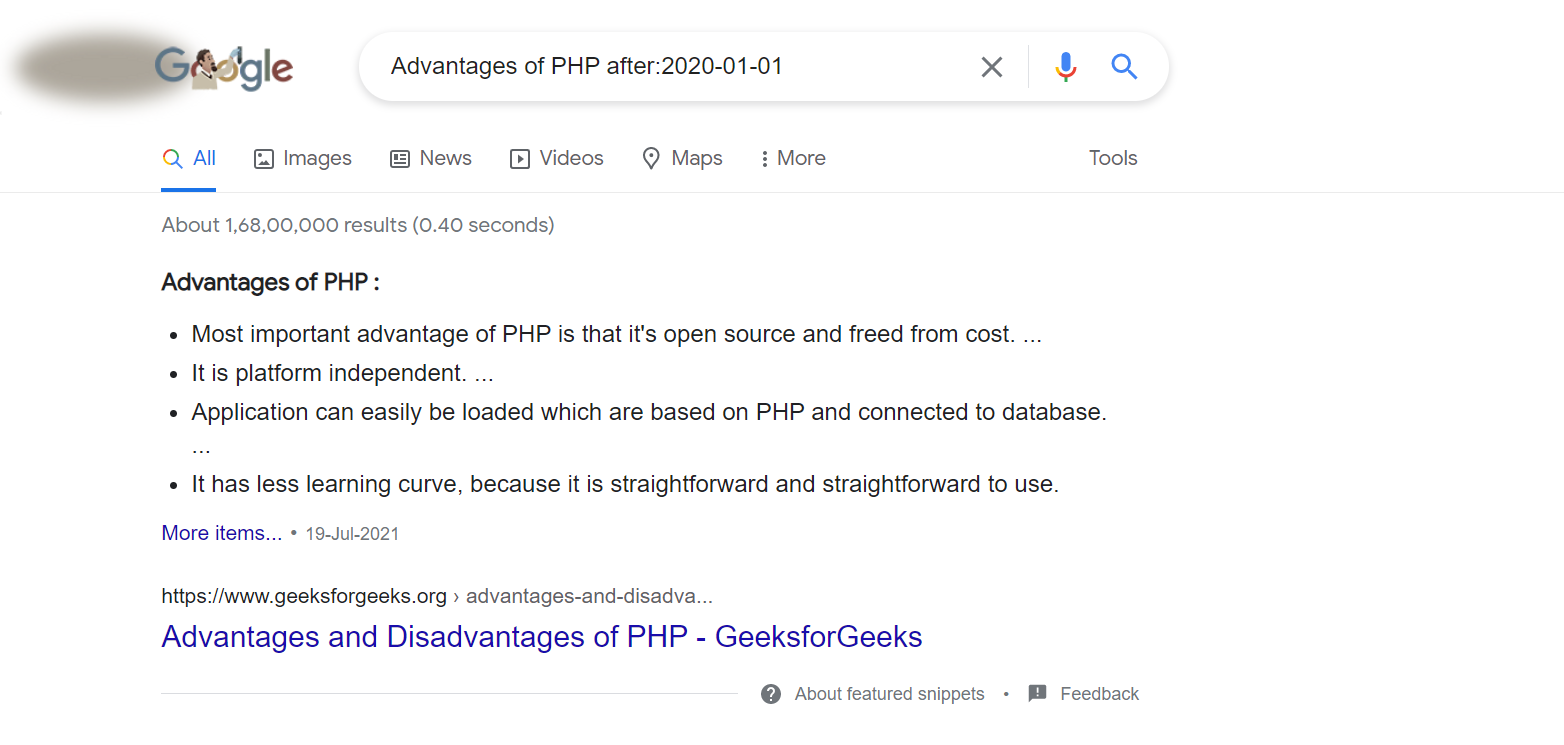
You can also select the Date Range using the built-in search-by-date filter.
1. Click on the "Tool" button below the search box.
2. Select the required option from the drop-down box.
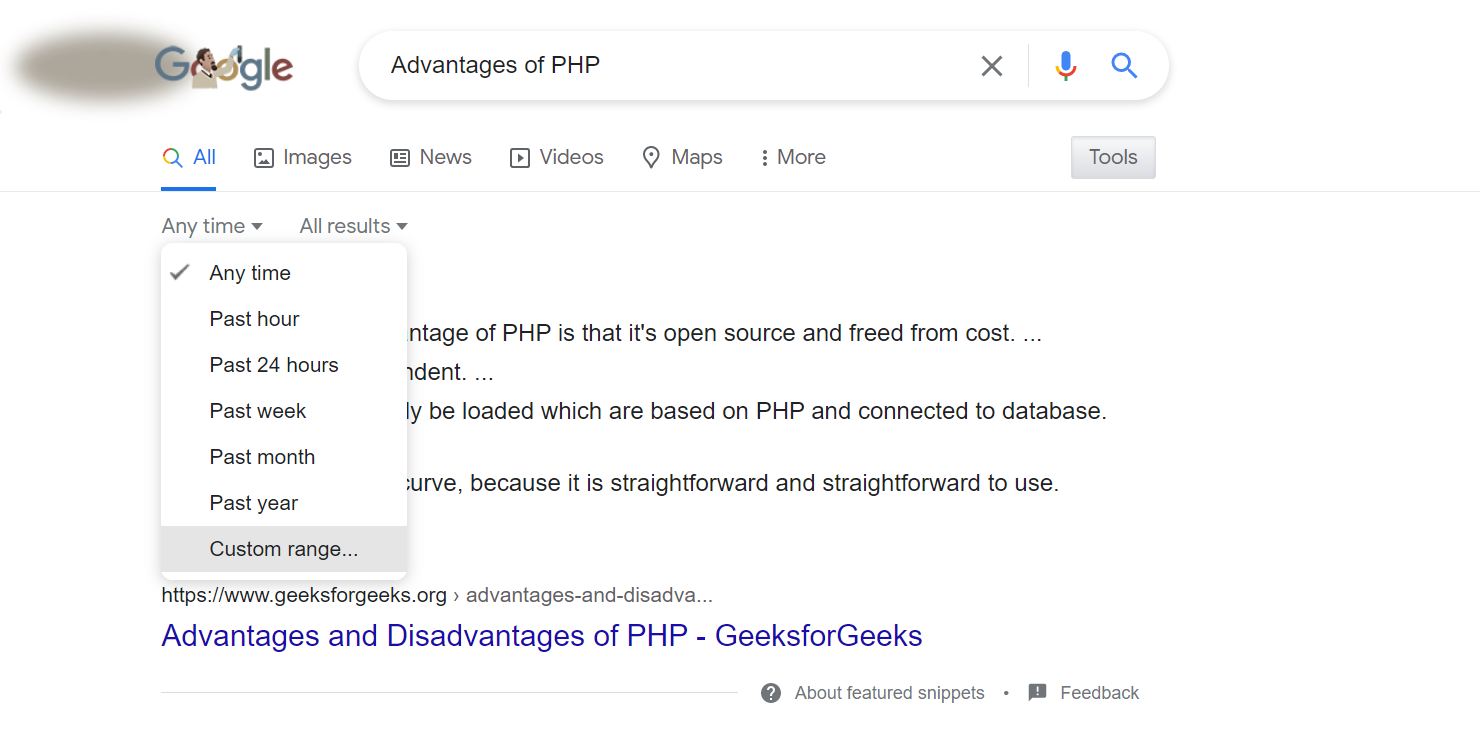
13. Use Google Search to Do Math
Google search can actually solve a number of mathematical problems. Note that it won't be able to solve all your math problems. If you need to do some quick calculations, this is a great place to do so. Also, make use of Google's calculator.
For example:
log 10 + log 100
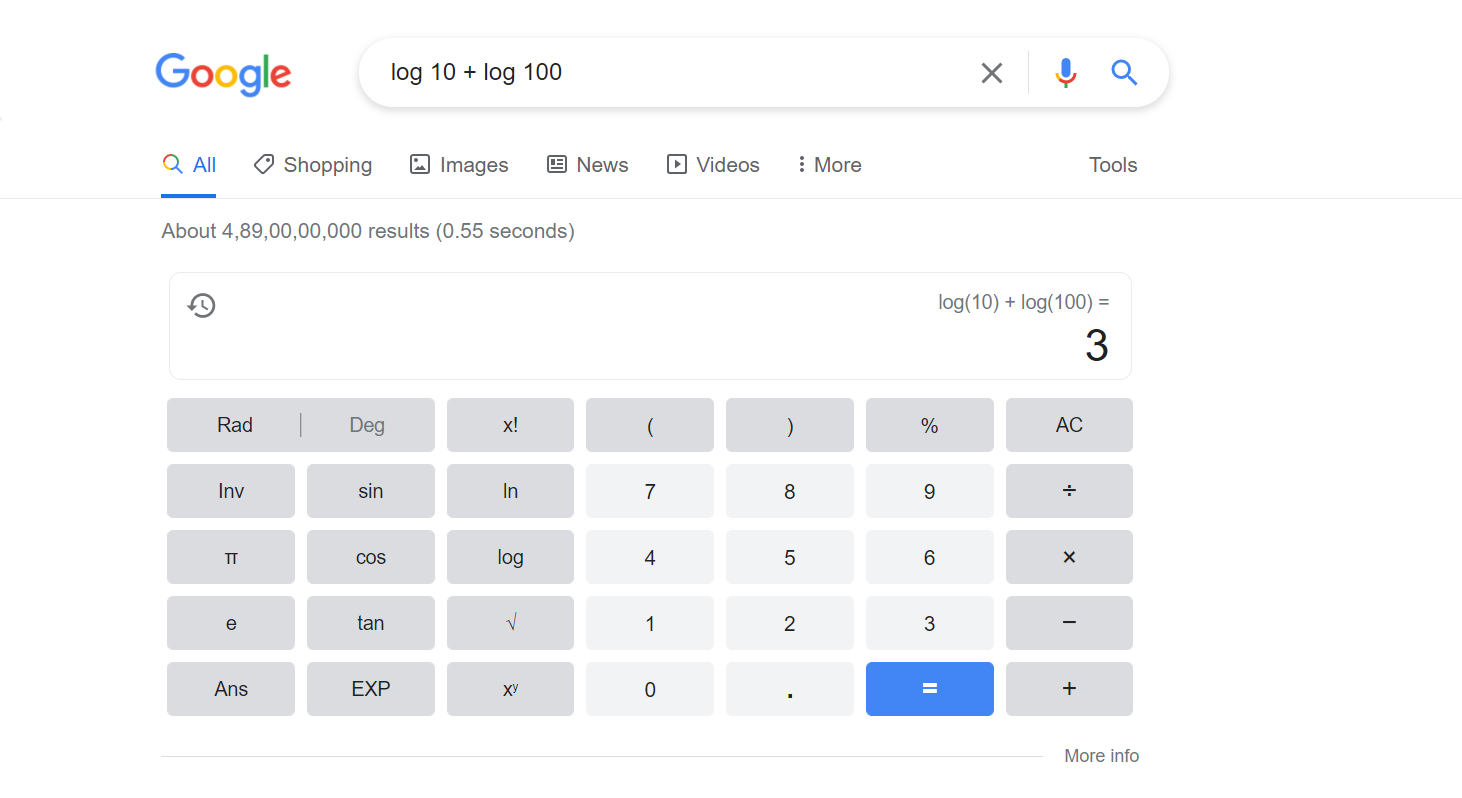
14. Use Tilde Operator (~) to Search for Terms Similar to the Given Term
Putting the tilde operator (~) before a word tells Google to search both the word and its synonyms.
For example:
Inheritance ~programming
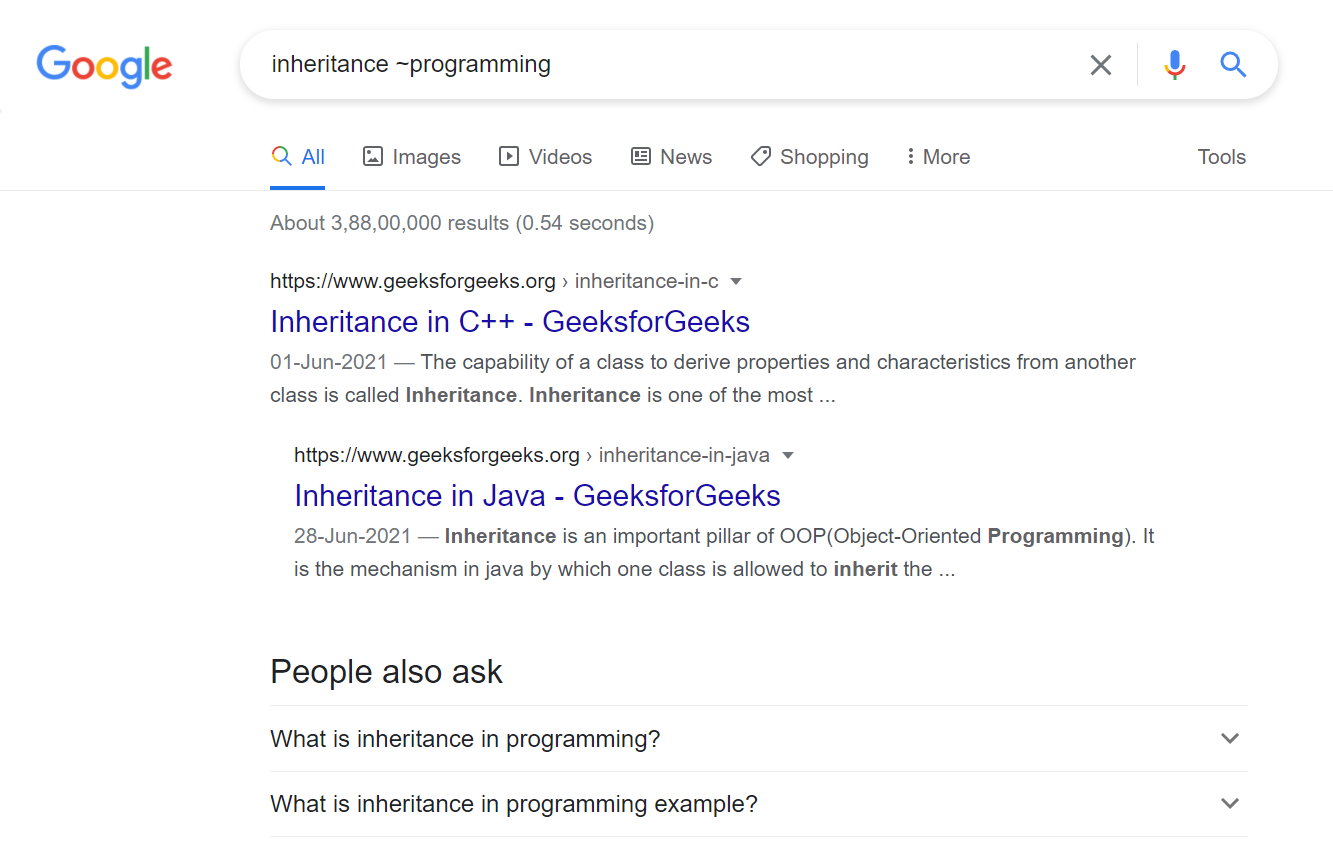
15. Search Images Using Google Images
You can search images using Google Images by heading over to https://www.google.com/imghp.
For example:
React logo png transparent
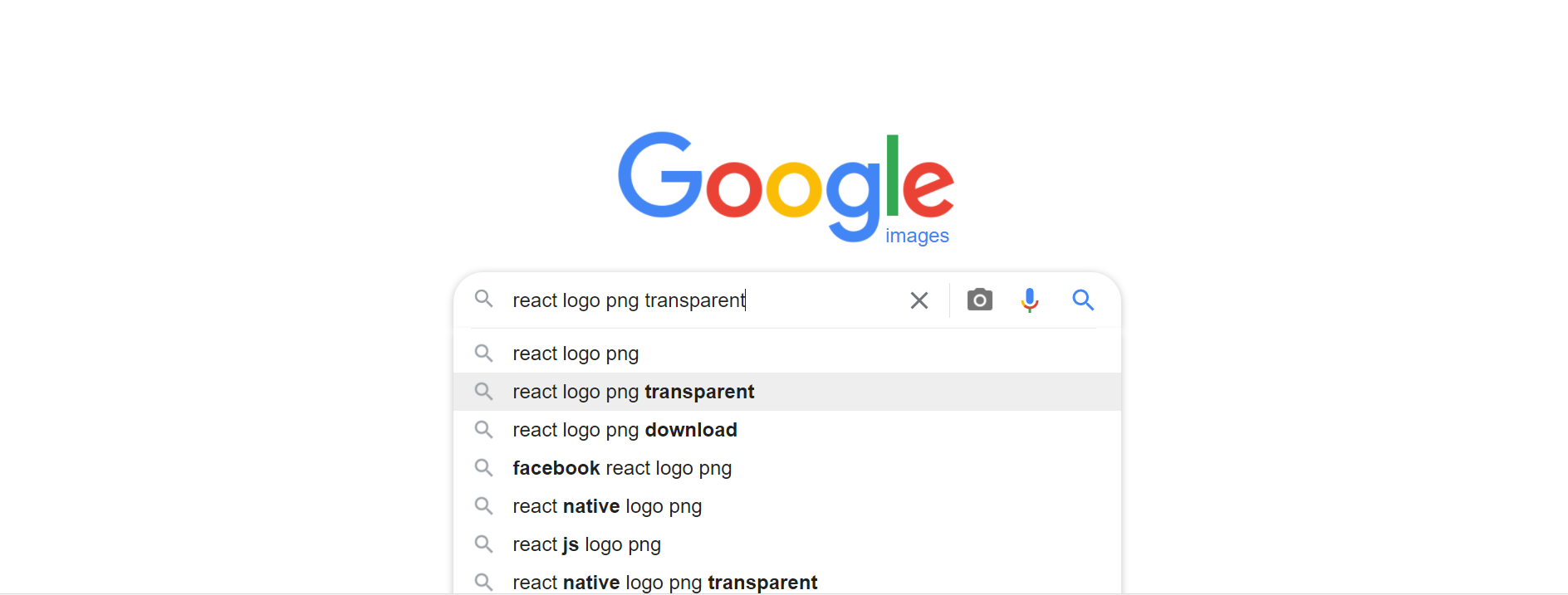
16. Use # to Search for Hashtags
If you want to search results for hashtags, use the # operator in front of a word.
For example:
#100DaysOfCode
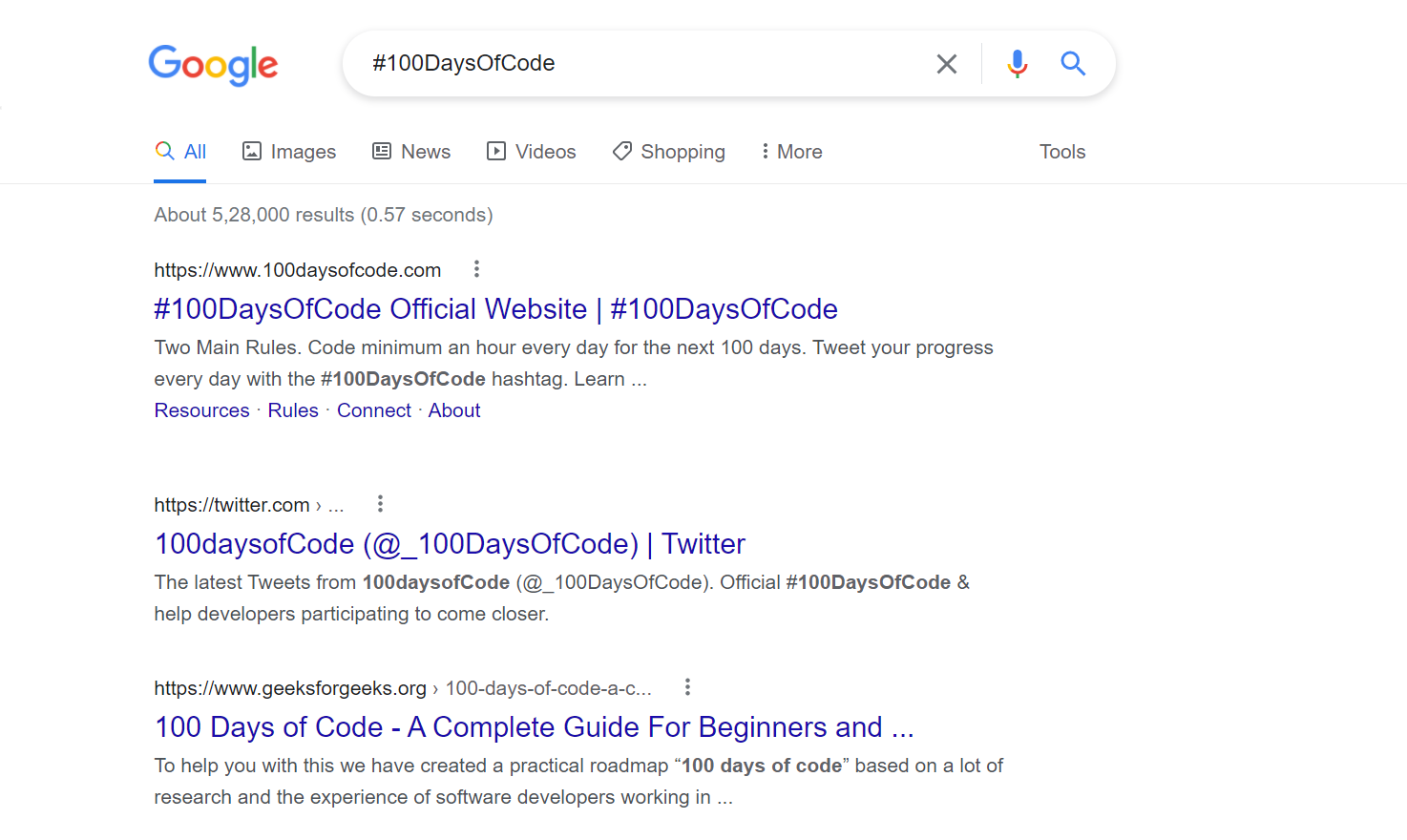
17. Search Using Your Voice
Can't be bothered to type your query? Use Google's voice search feature to search with your voice. Say "Ok Google" or click the Microphone to search your query. Learn more about how to search with your voice from Google.
For example:
Click the Microphone button and speak "how to run a for loop in Python"
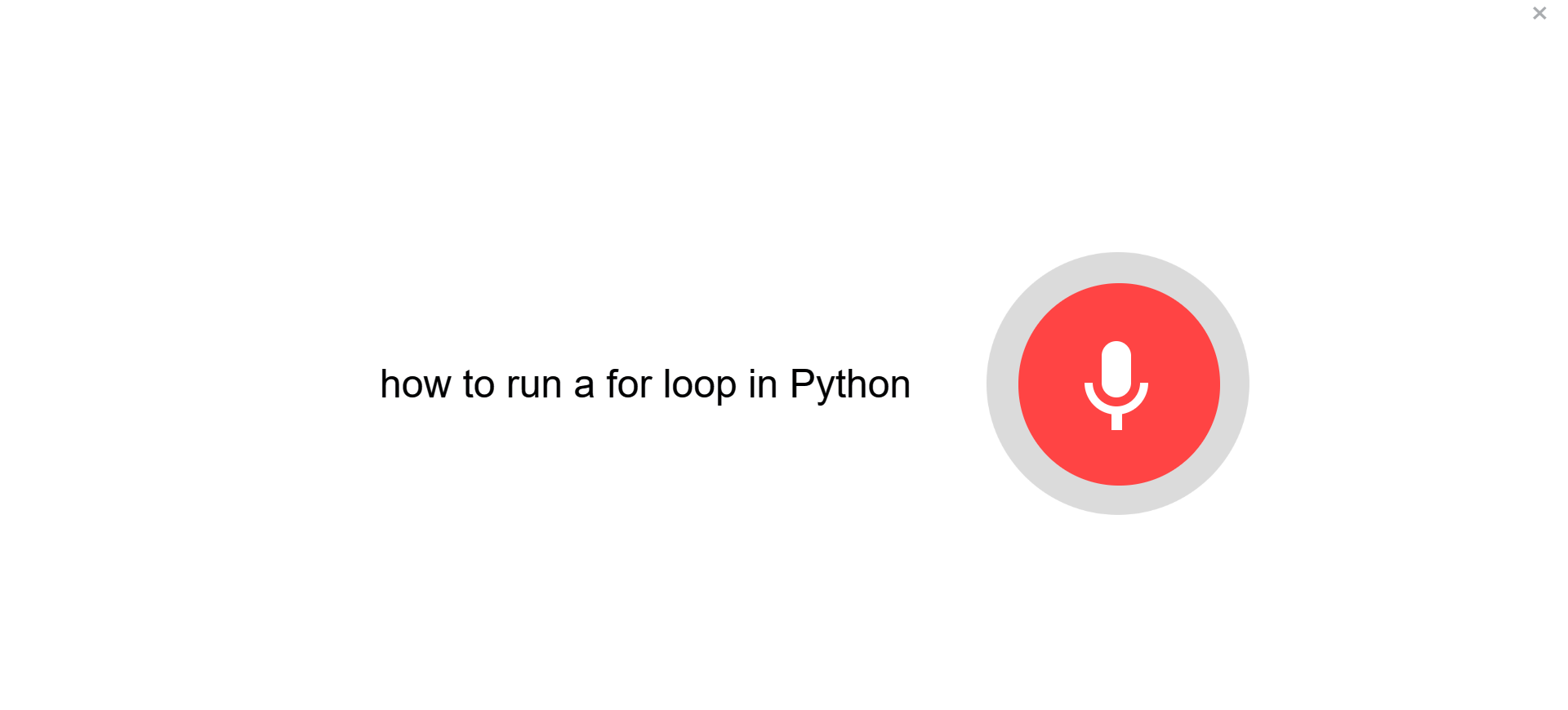
18. Use vs to Compare Anything
You can use the vs keyword to compare the differences between terms.
For example:
react vs angular
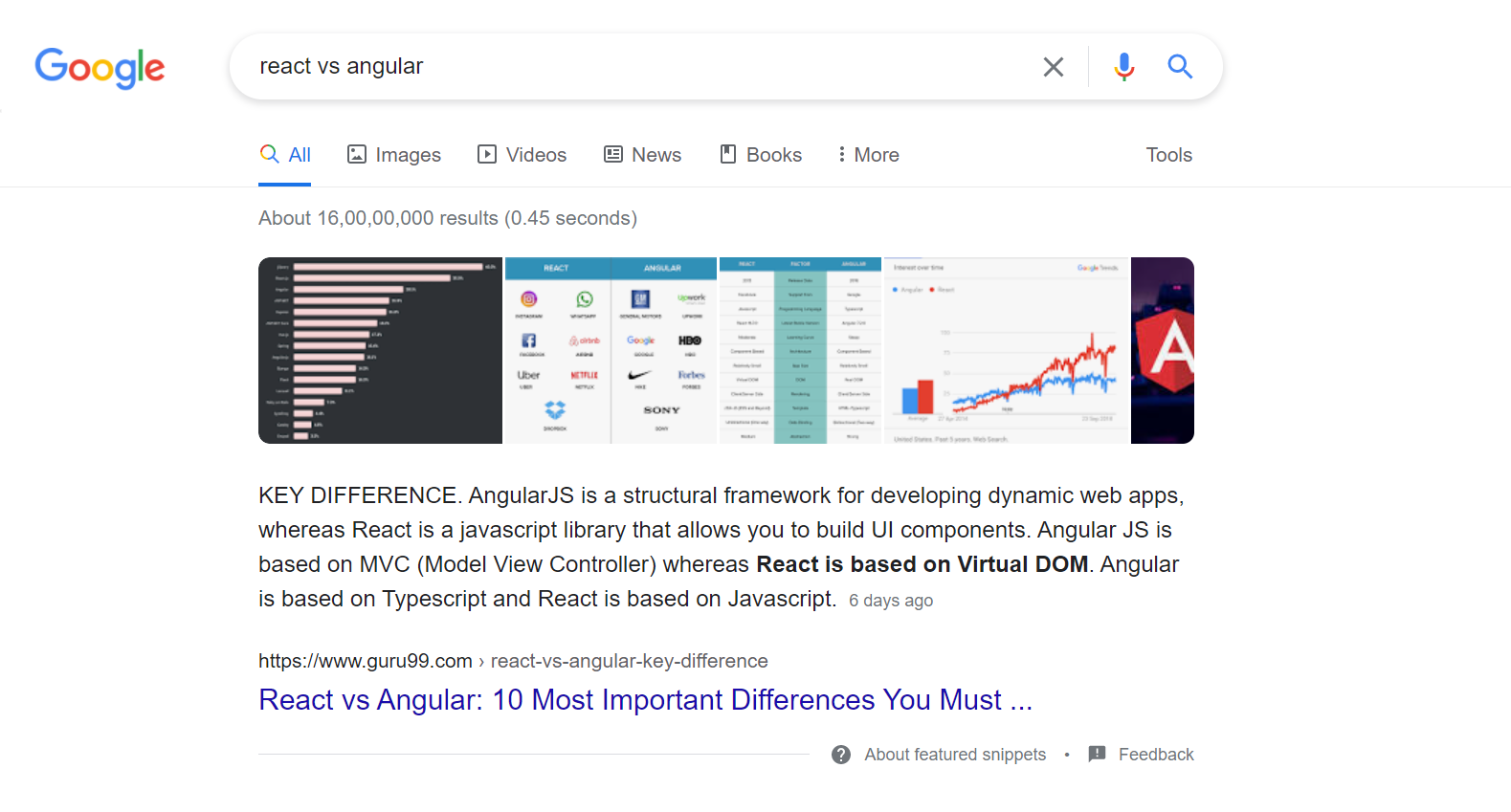
19. Use cache: Keyword to See Google’s Cached Version of a Site
If you want to see a cached version of a website, use the cache: keyword in front of the website's address.
For example:
cache:makeuseof.com

20. Don't Worry About the Little Things
You don't need to worry about the little things like spelling and capitalization. Google will handle that for you.
Example 1:
If you search Pythom programming tutorials, google will autocorrect it to Python programming tutorial. Google's spell checker will automatically use the most common spelling of the given word.

Example 2:
A search for JavaScript array methods is the same as javascript array methods.
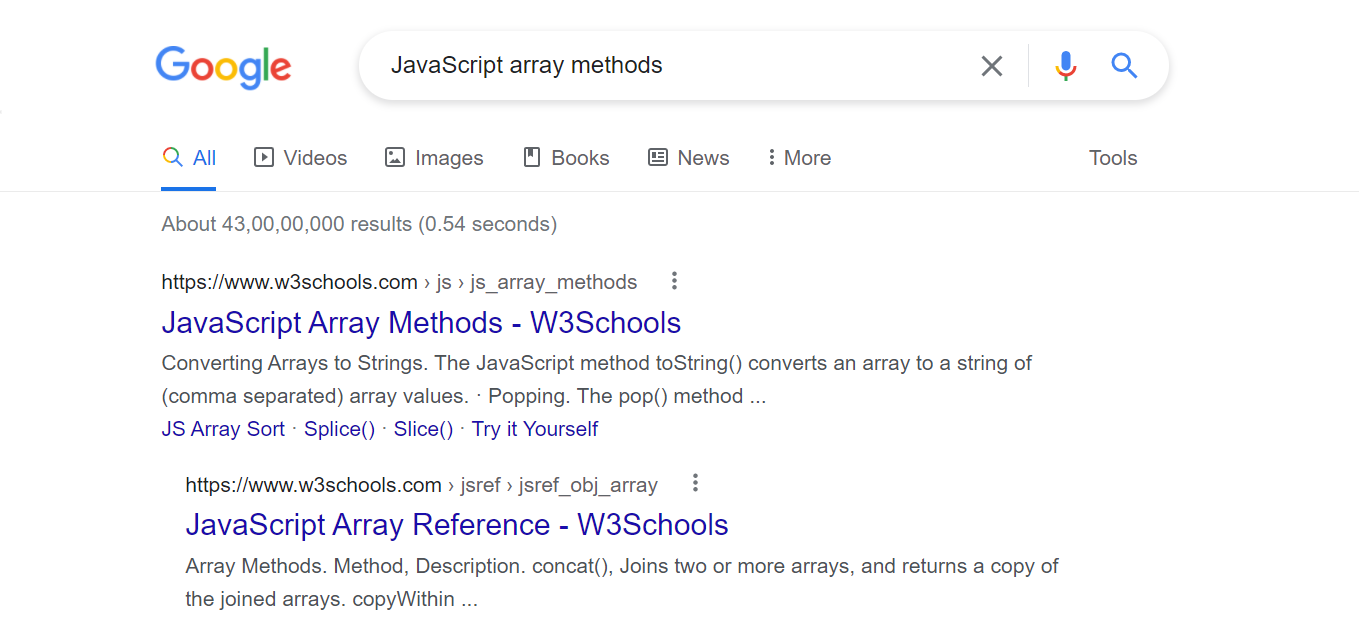
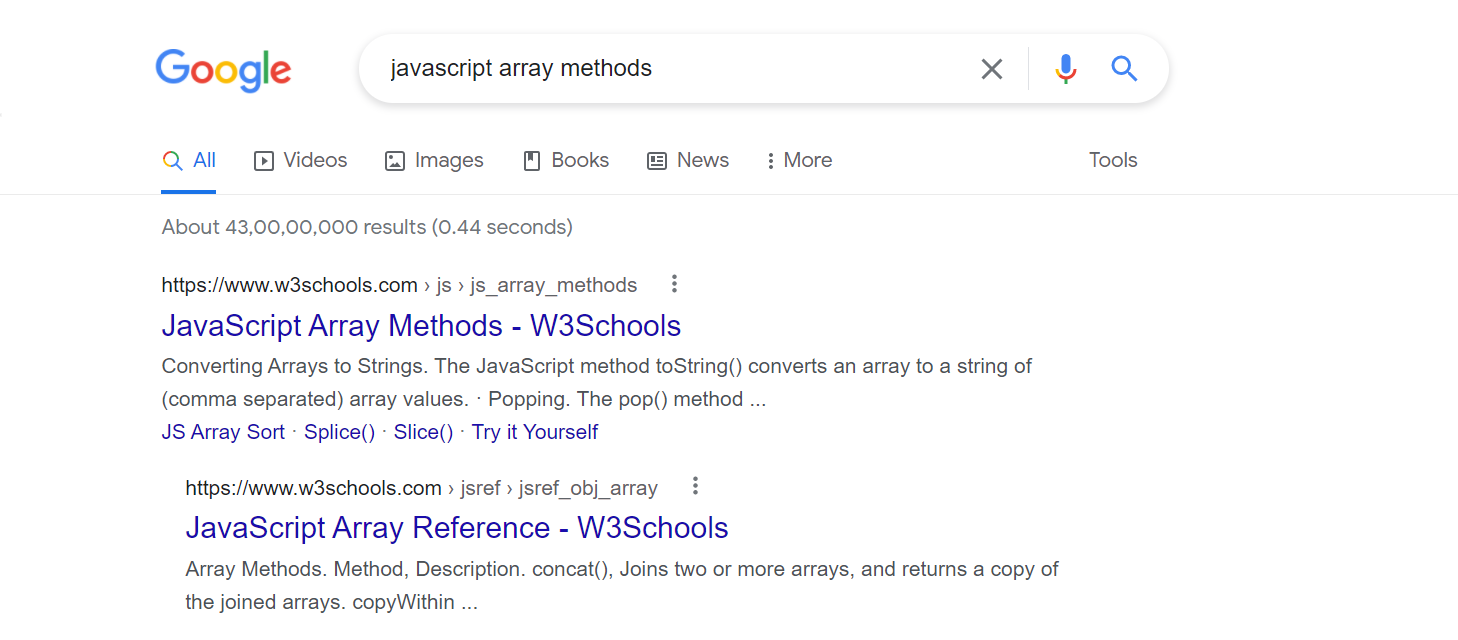
Related: JavaScript Array Methods You Should Master Today
21. Use Google Advanced Search
Google Advanced Search is a built-in feature of Google that allows users to find information on Google using a more detailed method. This is the one-stop destination if you want to search for something specific while filtering out your results in the best way possible.
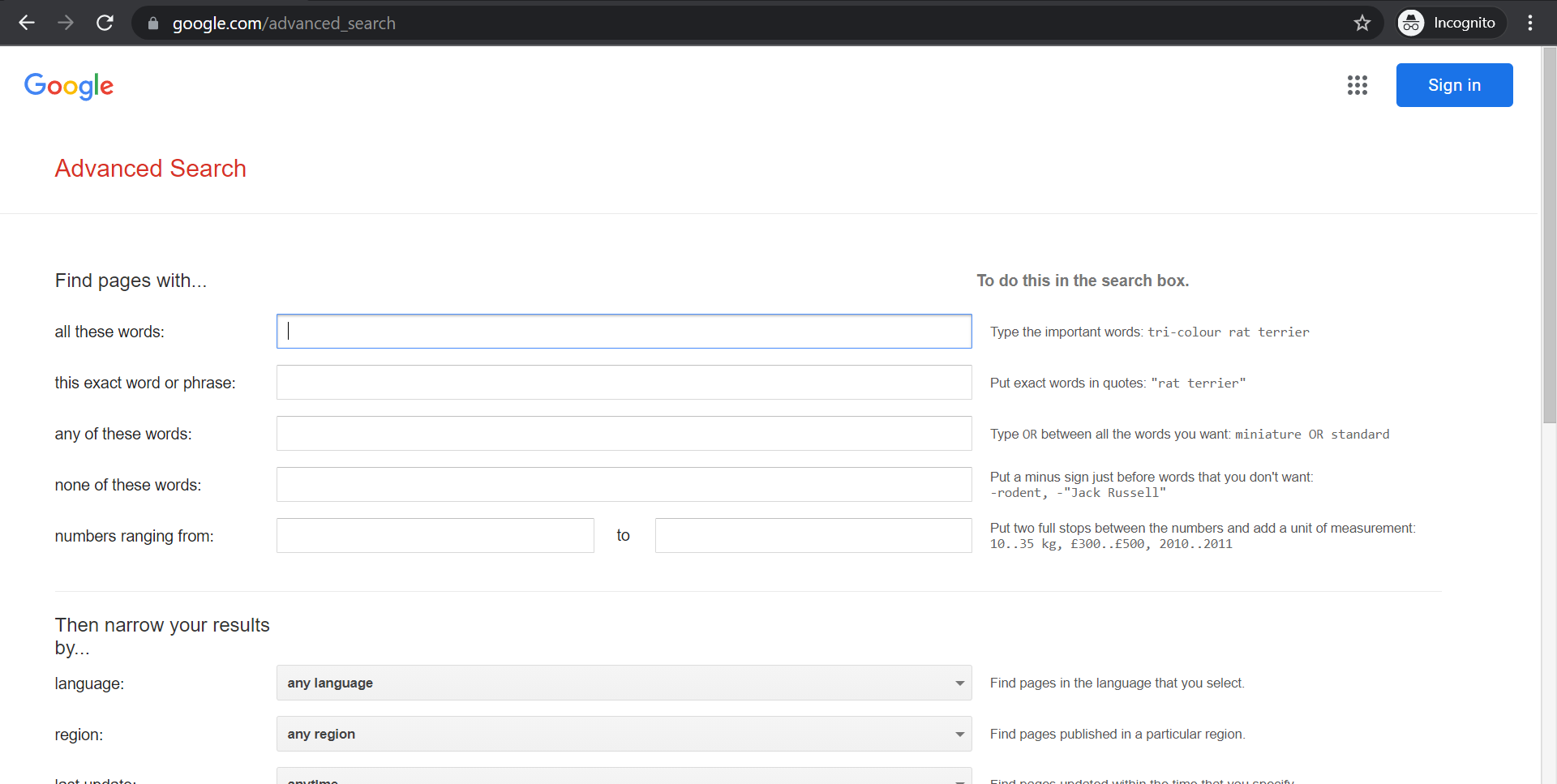
Programming and Googling Go Hand in Hand
Now you know 21 tips and tricks to make you a Google search wizard. Get your hands dirty to find better search results and become a better programmer. Googling is a must-know skill for programmers; but apart from this, do you have what it takes to become a real programmer?
